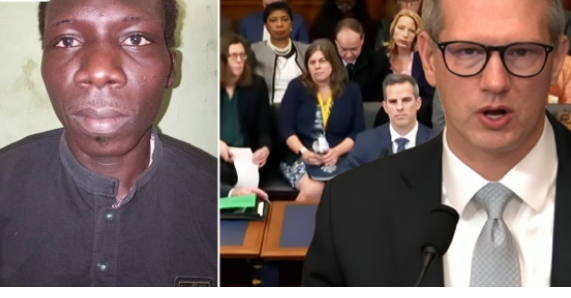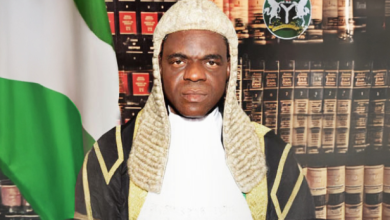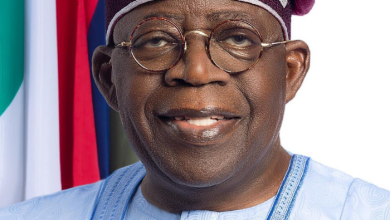
In a hearing before the United States House of Representatives, American lawmaker, Riley Moore, made a compelling plea on behalf of a Nigerian farmer facing execution.
Sunday Jackson, a man sentenced to death after killing an attacker while defending his own life, has become the focus of international attention as Moore urged the Nigerian government to reconsider the verdict.
Speaking during a session examining President Donald Trump’s redesignation of Nigeria as a Country of Particular Concern (CPC), Moore painted Jackson not as a criminal, but as a man caught in a desperate act of self-preservation.
“I would urge the Nigerian government to take a look at pardoning Sunday Jackson. He was defending his own life against one of these Fulani militants.
”That militant lost his life, and now Sunday Jackson is facing the death penalty. Where is the justice in that?, ” Moore said.
The lawmaker, a Republican, framed Jackson’s case as emblematic of larger concerns about fairness and human rights in conflict-ridden regions.
His testimony sought to highlight the blurred lines between self-defense and criminal culpability, emphasising the need for justice that accounts for context and circumstance.
For Jackson, the stakes could not be higher.
The death sentence has sparked outrage among human rights observers who argue that his actions were an act of survival, not a crime.
Moore’s intervention in the U.S. Congress marks an unusual but poignant international spotlight on the case, raising questions about the treatment of individuals caught in local conflicts in Nigeria’s Middle Belt.
The hearing also coincided with broader discussions over religious persecution and violence in Nigeria, as Trump’s CPC redesignation triggered scrutiny of the government’s handling of attacks by armed groups.
Jackson’s story, Moore argued, is a reminder that justice must balance accountability with compassion, and that punishing a man for defending his life serves neither principle.
As lawmakers in Washington debated policy and persecution, Sunday Jackson remains in custody in Nigeria, his fate uncertain.
Moore’s call for clemency, however, has brought renewed attention to the case, underscoring the human stories that often lie behind headlines about conflict, law, and governance.


